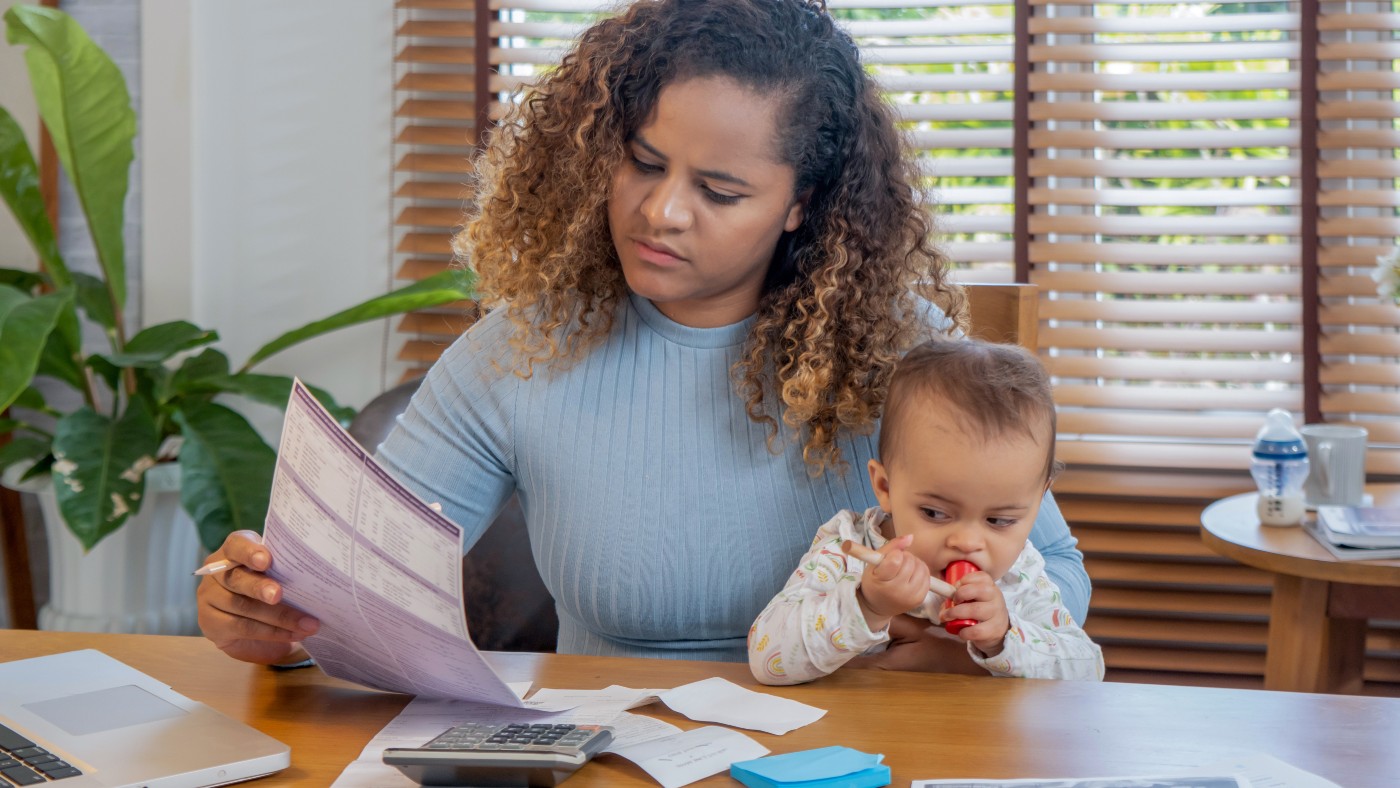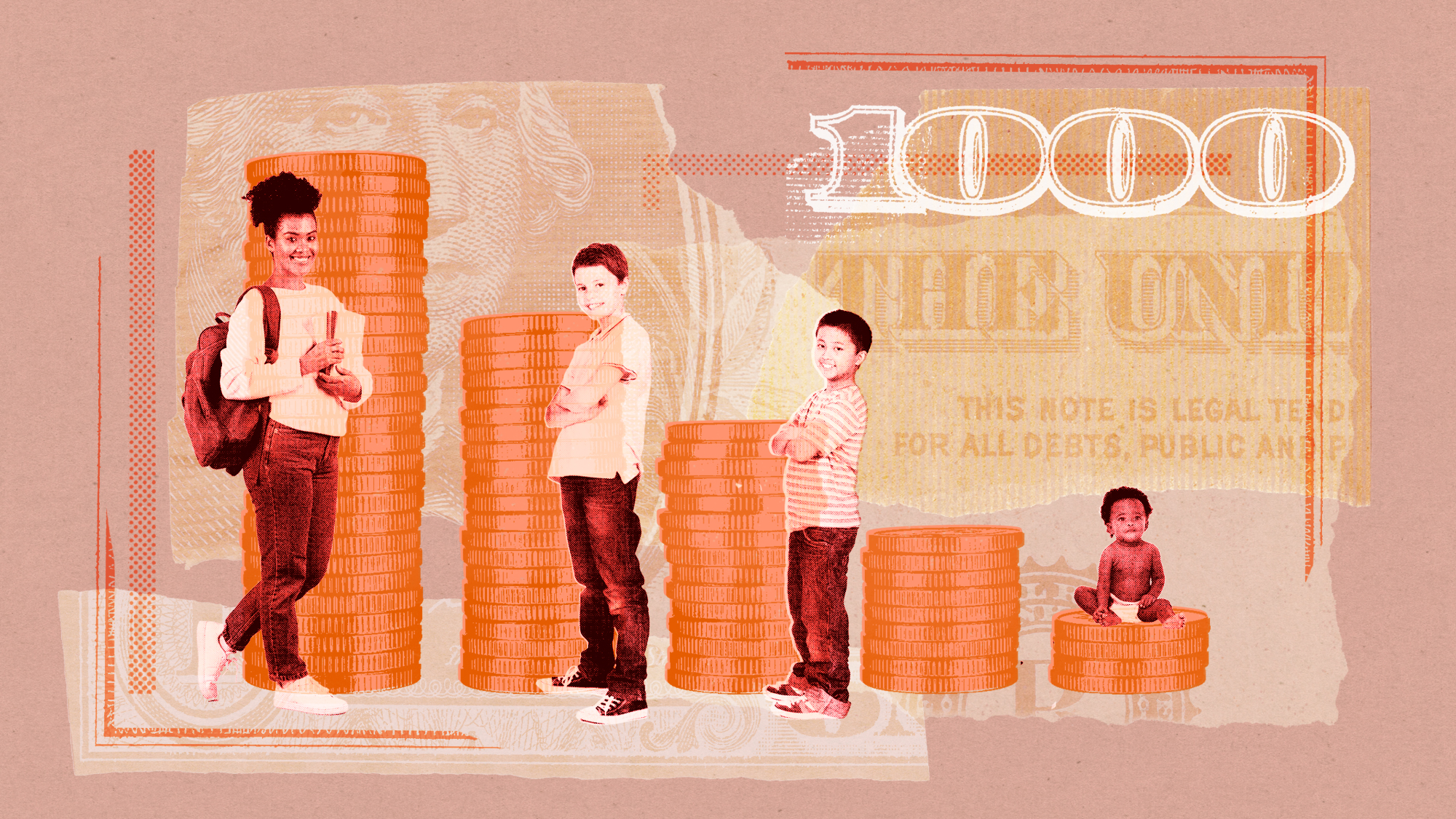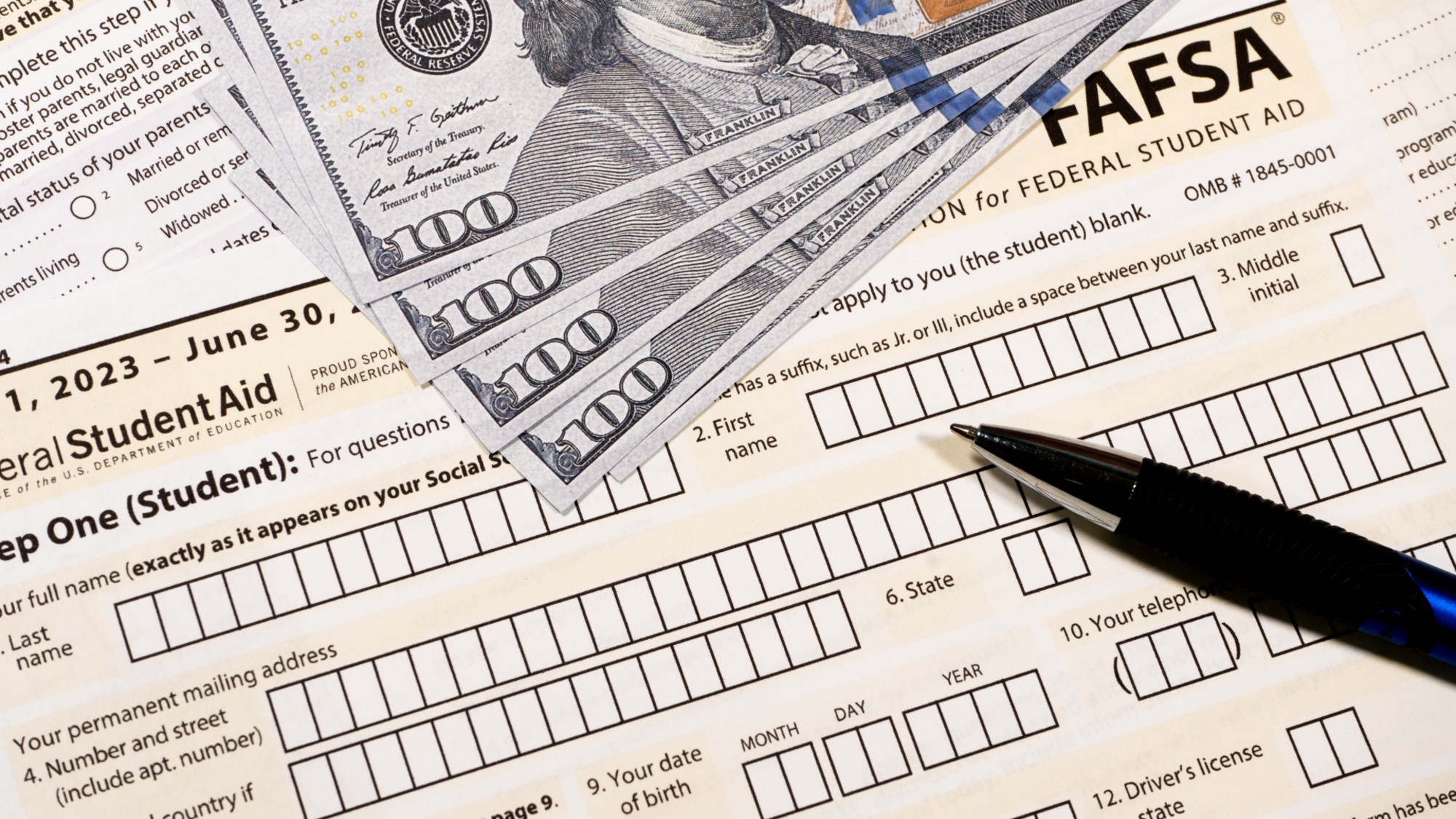How to get help with childcare costs
Raising a child is expensive but there is support available

A free daily email with the biggest news stories of the day – and the best features from TheWeek.com
You are now subscribed
Your newsletter sign-up was successful
Children bring joy but can also put extra pressure on your wallet.
Depending where you live in the UK, said online investment advisor Moneyfarm, the cost of raising a child up to age 18 is estimated to be between £150,000 and £200,000 and the “two greatest costs on a family’s budget are childcare and housing”.
Rising childcare fees and frozen benefits have left many families struggling to pay bills, with some parents deciding they cannot afford to work.
The Week
Escape your echo chamber. Get the facts behind the news, plus analysis from multiple perspectives.

Sign up for The Week's Free Newsletters
From our morning news briefing to a weekly Good News Newsletter, get the best of The Week delivered directly to your inbox.
From our morning news briefing to a weekly Good News Newsletter, get the best of The Week delivered directly to your inbox.
There is some support available though, especially for low-income families.
Healthy Start vouchers
Low-income families with young children can get help to pay for essential items such as milk, vegetables and fruit using Healthy Start vouchers.
The scheme is open to women who are more than ten weeks pregnant and parents of under-fours who are on benefits, such as income support or universal credit. Pregnant under-18s can also access it whether or not they are on benefits.
The vouchers come in the form of a prepaid card, which can be used at most shops including supermarkets and pharmacies.
A free daily email with the biggest news stories of the day – and the best features from TheWeek.com
A pregnant woman will get £4.25 in each week of her pregnancy from the tenth week. Eligible users then get £8.50 each week from the child’s birth to age one and £4.25 per week until the child turns four.
It is important to check whether you are eligible, said The Money Edit, as according to the NHS, 575,000 people who could get the vouchers aren’t claiming and could be missing out on hundreds of pounds each year towards their food bill.
You can check whether you are eligible, and apply, on the NHS website.
People on certain benefits such as universal credit who are expecting their first baby can also apply for a Sure Start Maternity Grant, which is a one-off payment of £500 to help with the costs of having a baby.
Childcare fees
Regardless of where you live in the UK, said MoneyWeek, “you will still be paying one of the most expensive childcare bills in the world”.
The average weekly price of 50 hours of care for a child aged under two in nursery is £269.86, according to children’s charity Coram. Over a year, this amounts to £14,033, said MoneyWeek. For parents in London, the average is £368.73, which amounts to more than £19,000 a year.
There are a couple of ways you can cut these costs. Parents can get up to £2,000 a year from the government to help pay for childcare. You will need to open a tax-free childcare account with HMRC and for every £8 paid into the account, the government adds £2.
The scheme replaced childcare vouchers in October 2018 and parents must be working and earning the minimum wage for 16 hours a week or more. Parents only qualify if each earns below £100,000 a year so if one in a couple earns £105,000 and the other doesn’t work, they won’t be able to use tax-free childcare, warned MoneyWeek.
The cost of childcare gets slightly cheaper once your child is a toddler.
In England, all children aged three and four are entitled to 15 hours of free childcare per week at a nursery or childminder for 38 weeks of the year. This rises to 30 hours of free childcare per week for working parents, unless one parent earns more than £100,000 a year. However, this only kicks in from the term after the child turns three and stops when they start reception or reach compulsory school age. Parents on benefits may be able to get 15 free hours for a two-year-old.
There are rumoured plans to expand this support, said The Guardian, “for working parents of children aged nine months to three years”. There are different schemes in Scotland, Northern Ireland and Wales.
Child benefit
Child benefit is “the government’s way of acknowledging the costs involved in raising a child”, said MoneySavingExpert.
It is paid monthly to anyone responsible for children under the age of 16 or under 20 if they stay in certain full-time education or unpaid training.
The payment is currently worth £21.80 a week for your first child and £14.45 a week for any children after that. You might use the money, said MoneySavingExpert, to pay for clothes, food, pocket money or birthday and Christmas gifts.
Only one parent or person responsible for the child gets the benefit and the full amount is only paid to people who earn up to £50,000 per year. After this, there is a high-income child benefit charge.
Around 340,000 parents are caught out by this rule, said The Times. For every £100 that your adjusted income is above £50,000, you have to pay back 1% of child benefit until your income hits £60,000, at which point you are entitled to nothing, the newspaper said.
The payments will not stop though, The Times warned, as you have to pay the charge through a self-assessment tax return or face an HMRC fine. “It is up to you to opt out of getting them, or to pay them back,” the newspaper said.
Free school meals
Children of parents on certain benefits such as universal credit or pension credit may qualify for free school meals as well as breakfast club support.
Currently, in England all eligible children in reception, year one and year two can get a free meal in school.
In Scotland, free school meals can be accessed between reception and year five, regardless of the parents’ income.
In Wales, all pupils in reception get free school meals. This is being extended to year one and two pupils later this year and to all primary-school pupils in 2024.
Beyond those ages, the support you receive for free school meals depends on where you live, your income and the benefits you receive.
If you live in England or Wales, your child can qualify for free school meals if you have an income of £7,400 a year or less, not including benefits. Those on child tax credits must earn under £16,190 a year.
In Scotland, those on universal credit must have a monthly income of £660 or less – £7,920 a year.
You need to apply through your local authority and more than 230,000 eligible children in England are not receiving this support because their parents or carers have not applied, said The Sun.
Low-income support
There are two benefits that low-income families can get to help with childcare costs, said The Times Money Mentor.
You can only claim one of them though, the website said, “because the old system called working tax credit – worth up to £2,935 depending when your child was born” is being replaced by universal credit.
People receiving universal credit can claim up to 85% of eligible childcare costs up to a maximum of £646 a month for one child and a maximum of £1,108 a month for two or more children.
You can apply via the gov.uk website and can make a claim up to three months in advance.
There may be other ways to cut the costs of childcare, The Times Money Mentor said, such as pooling with friends or even sharing a nanny, plus thousands of grandparents are not aware they can claim National Insurance credits for looking after grandchildren up to the age of 12 so are potentially “missing out on the chance to boost their retirement income”.
Marc Shoffman is an NCTJ-qualified award-winning freelance journalist, specialising in business, property and personal finance. He has a BA in multimedia journalism from Bournemouth University and a master’s in financial journalism from City University, London. His career began at FT Business trade publication Financial Adviser, during the 2008 banking crash. In 2013, he moved to MailOnline’s personal finance section This is Money, where he covered topics ranging from mortgages and pensions to investments and even a bit of Bitcoin. Since going freelance in 2016, his work has appeared in MoneyWeek, The Times, The Mail on Sunday and on the i news site.
-
 The mystery of flight MH370
The mystery of flight MH370The Explainer In 2014, the passenger plane vanished without trace. Twelve years on, a new operation is under way to find the wreckage of the doomed airliner
-
 5 royally funny cartoons about the former prince Andrew’s arrest
5 royally funny cartoons about the former prince Andrew’s arrestCartoons Artists take on falling from grace, kingly manners, and more
-
 The identical twins derailing a French murder trial
The identical twins derailing a French murder trialUnder The Radar Police are unable to tell which suspect’s DNA is on the weapon
-
 Six ways to boost your finances in 2026
Six ways to boost your finances in 2026The Explainer It’s not too late to make a new year’s resolution to finally get organised money-wise
-
 How your household budget could look in 2026
How your household budget could look in 2026The Explainer The government is trying to balance the nation’s books but energy bills and the cost of food could impact your finances
-
 Should you add your child to your credit card?
Should you add your child to your credit card?The Explainer You can make them an authorized user on your account in order to help them build credit
-
 What are the Trump Accounts for kids and how do they work?
What are the Trump Accounts for kids and how do they work?The Explainer Parents will soon be able to open tax-advantaged investment accounts on their child's behalf
-
 What are Pell Grants and who do they benefit?
What are Pell Grants and who do they benefit?The Explainer These are grants, not loans — meaning students do not have to repay the funds, but they must first meet certain conditions
-
 What to know about the latest Social Security cost-of-living adjustment
What to know about the latest Social Security cost-of-living adjustmentThe Explainer A slightly more substantial increase for 2026, though not by much
-
 The financial changes to expect in 'Awful April'
The financial changes to expect in 'Awful April'The Explainer As the new financial year begins, it brings changes for bills, wages and tax
-
 How to earn extra cash for Christmas
How to earn extra cash for ChristmasThe Explainer The holiday season can be expensive but there are ways to bolster your festive finances